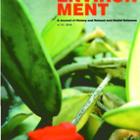Holm, Poul. “World War II and the ‘Great Acceleration’ of North Atlantic Fisheries.” Global Environment 10 (2012): 66–91. Republished by the Environment & Society Portal, Multimedia Library. http://www.environmentandsociety.org/node/7577.
World War II impacted both the marine and the terrestrial environment of the North Atlantic, triggered major political and economic decisions with profound cultural implications, and eventually induced a change in ocean management. The War helped develop technologies and state responses to immediate post-war market problems and impacted the Great Acceleration of fisheries between 1945 and 1975. During the war, fisheries were closed completely only in certain parts of the most fished waters, such as the central North Sea and the English Channel. Even in the most affected Northern European waters some fishing continued throughout the war. Fishing was carried on in the waters off Iceland and the Arctic, but extractions were much reduced. Previously unfished stocks in the Baltic were targeted for the first time ever. The effect of the closure of certain fisheries was an overall increase of survival rates of marine animals. Technological advances made during the War increased the fishing efficiency of vessels when the technology was put to commercial use soon after the War. The immediate benefit of better catch-per-unit effort after the War was concealed by the slump in the international fish market. The wartime ‘dividend’ of marine resources was largely spent by the mid-1950s in the North Sea and by 1960 in the wider North Atlantic. The war disrupted market allegiances, effectively ended old fishing patterns and introduced a forced modernisation in the High North. Among North Sea countries, Denmark in particular responded to the disruption of the market for fresh fish by introducing reduction fishery, which led to severe environmental stress and eventually a collapse of the North Sea herring stock. Before WWII, the oceans had largely been regulated according to the international law of open access to all ocean resources. North Sea countries resumed negotiations over fishing rights after 1945, expecting to revert to old principles. However, U.S. President Harry Truman’s declaration against Japan came to impact fishing negotiations in the North Atlantic and changed post-war fishing management forever.
— Text from The White Horse Press website
All rights reserved. Made available on the Environment & Society Portal for nonprofit educational purposes only, courtesy of Poul Holm and XL edizioni.


